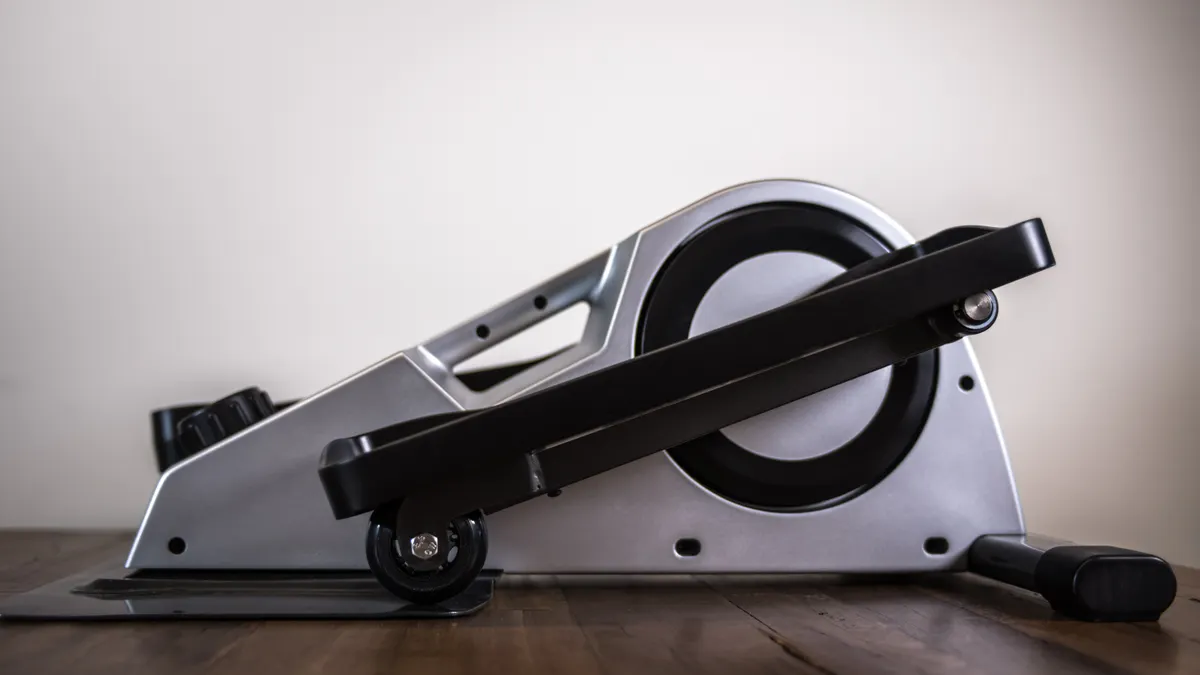Exercising at one's desk has always been a somewhat intriguing, albeit elusive, idea. Whether checking your latest emails or planning tomorrow's critical HR staff meeting, getting a simultaneous workout clearly has appeal.
Three University of Chicago classmates had the same thought when in 2013 they conceived of Cubii, a Bluetooth-connected, under-the-desk elliptical machine that allows people to do aerobic exercise while getting work done.
Multi-tasking? For sure. But does the Cubii have a place within an employer's wellness program?
Shivani Jain, one of the three Cubii co-founders (Arnav Dalmia and Ryota Sekin are the other two), has no doubt about it. She cites numerous studies that have shown even moderate activity levels throughout the day significantly reduce health risks and insurance costs. Physical activity also reduces stress and that could mean increased productivity, she adds.
"Cubii can also promote great engagement with and for employees," she says. "The connected app allows tracking, setting goals and competing with coworkers, and it can integrate with data from other devices, like Fitbit."
Unlike other workplace fitness equipment, such as treadmill desks, Cubii is unobtrusive. Cubii is quiet, low-profile and can be used under a person’s desk. Also, she says, an employer doesn’t need to change any existing furniture or office layouts.
Design-wise, Cubii offers "optimal angles" that allow a user's legs to move smoothly and comfortably – giving them an easy under-the-desk workout with no bumped knees.
Named as a "fun spin on the cubicle concept," the $347 Cubii was one of the most successful fitness-based crowdfunding campaigns in 2014, raising about $300,000 via Kickstarter.
"Cubii fits anywhere so it can easily be moved from desk to desk by employees, or put at a common-area desk where people could work at a laptop," she says. And in addition to general fitness improvements, the Cubii app’s ability to run competitions may also be appealing to employers, as it’s a way to boost the always-elusive employee engagement and build camaraderie.
As fitness trackers have become popular in employee wellness, the ability to integrate data within the Cubii app makes it, at the very least, on trend.
So far, apart from some Silicon Valley employers, Jain says the company is seeing more interest in Cubii from small and medium-sized employers (those with fewer than 1,000 employees) because of low adoption hurdles and ease of implementation. Also, many individual customers working in large companies have directly purchased Cubii for themselves. Those buyers represent at least 15% of Fortune 100 companies.
What can Cubii do that say a gym membership can't? Jain says that with Cubii you really don't have an excuse. With gym memberships, people often complain about lack of time, commitments, stress, and so on.
"We look at it this way, for those already fit, Cubii is a great complement to what they're already doing," she says, adding that for the busy professional, Cubii is a great way to get in some physical activity when time for exercise is short. And for the inactive worker trying to turn things around, Cubii is low impact, gamifies exercise through its app and competitions, and has varying intensity levels.
If anything, Cubii points to a growing industry that focuses on a workplace design that encourages moderate activity throughout the day, instead of the sedentary style of old.












